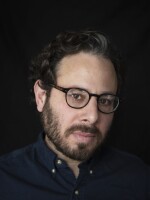SCOTT SIMON, HOST:
This is WEEKEND EDITION from NPR News. I'm Scott Simon. The World Health Organization said today that more than 10,000 people have been sickened by Ebola. New York and New Jersey announced aggressive new steps to try to keep the virus out of the United States. They're invoicing a mandatory 21-day quarantine for medical workers and other travelers who had contact with Ebola patients in West Africa. This comes just today after the first diagnosed case of Ebola in New York City as NPR's Joel Rose reports.
JOEL ROSE, BYLINE: The mandatory quarantine applies to any traveler, including medical personnel, who had contact with Ebola patients in Guinea, Liberia and Sierra Leone. The governors of New York and New Jersey announced the new protocols at a late afternoon news conference on Friday.
(SOUNDBITE OF PRESS CONFERENCE)
GOVERNOR ANDREW CUOMO: We have to do more. It's too serious a situation to leave it to the honor system of compliance.
ROSE: Andrew Cuomo of New York says he has to think about the safety of the most densely populated city in the country.
(SOUNDBITE OF PRESS CONFERENCE)
CUOMO: You know, in a region like this, you go out one, two or three times, you ride the subway, you ride a bus, you affect hundreds and hundreds of people.
ROSE: Cuomo is a Democrat facing reelection in a few weeks. New Jersey Governor Chris Christie is expected to seek the Republican nomination for president in 2016. Christie points out that Kennedy Airport in New York and Liberty International in Newark are two of the five major airports where all passengers from Ebola-stricken countries are being directed.
(SOUNDBITE OF PRESS CONFERENCE)
GOVERNOR CHRIS CHRISTIE: Our folks are coming back and forth between our two states on a regular basis. And we have two of the five airports that have been designated as funnel points for folks to come in. Our states have to be the most vigilant, and we are going to be the most vigilant.
ROSE: The protocols are so new that many of the details are still being worked out including how screening at the airports would work and where travelers who don't live in the two states will spend the mandatory quarantine period. They go beyond the current guidelines issued by the Centers for Disease Control and Prevention, which call for voluntary quarantine in most cases. Although a spokesman says the CDC is reviewing its policies as well. But critics are concerned that the new quarantine policy will require health care workers to give up an additional three weeks if they volunteer to treat Ebola victims in West Africa. Jennifer Nuzzo is with UPMC Center for Health Security.
JENNIFER NUZZO: The deep worry here - and I think this is what we're going to see is that medical volunteers are going to be less likely to want to sign up to go to West Africa to fight the outbreak.
ROSE: The sudden change in policy was prompted by the Ebola diagnosis of Dr. Craig Spencer. He returned to New York City a week ago after treating Ebola patients in Guinea. City health officials say he developed a fever on Thursday and was rushed to the hospital where he was diagnosed with Ebola. In the meantime, Spencer road the subway, took a cab and went bowling in New York, although health officials say he wasn't contagious at the time because he wasn't showing any symptoms. And Spencer wasn't treating patients either, points out Jennifer Nuzzo at the Center for Health Security.
NUZZO: The fact that he may have gone bowling or may have gone out for some meatballs was in no way posing harm to others. And because of this, we're now taking measures that are essentially going to guarantee that no doctor or nurse is going to want to go over to West Africa and volunteer.
ROSE: Earlier Friday, New York City mayor Bill de Blasio said the volunteers are key.
(SOUNDBITE OF ARCHIVED RECORDING)
MAYOR BILL DE BLASIO: These individuals who are going there to serve are the people who will end this crisis. So we have to make sure that that flow of medical personnel can continue.
ROSE: Aid groups say tens of thousands of additional medical workers are needed in West Africa. And they were already having a difficult time finding volunteers. Joel Rose, NPR News, New York. Transcript provided by NPR, Copyright NPR.
NPR transcripts are created on a rush deadline by an NPR contractor. This text may not be in its final form and may be updated or revised in the future. Accuracy and availability may vary. The authoritative record of NPR’s programming is the audio record.


